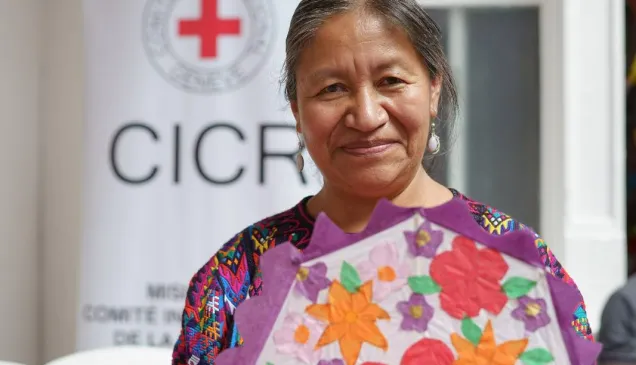Mexico and Central America: Vital support for migrants from Red Cross volunteers
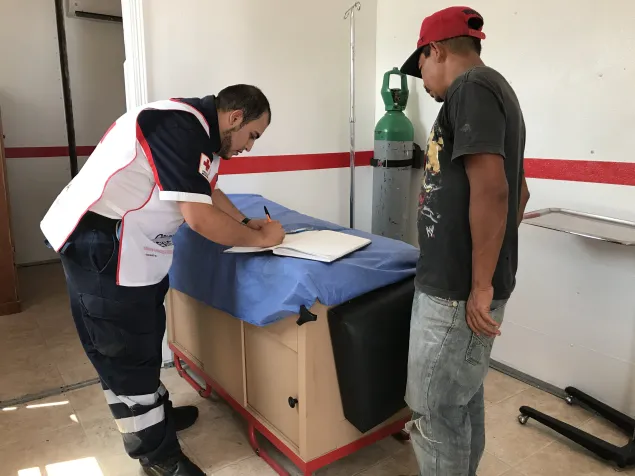
Migrants arriving at the aid station in Caborca, northern Mexico, are often dehydrated. The local climate is hot and arid. Volunteers from the Mexican Red Cross give the migrants water and look after them until they recover.
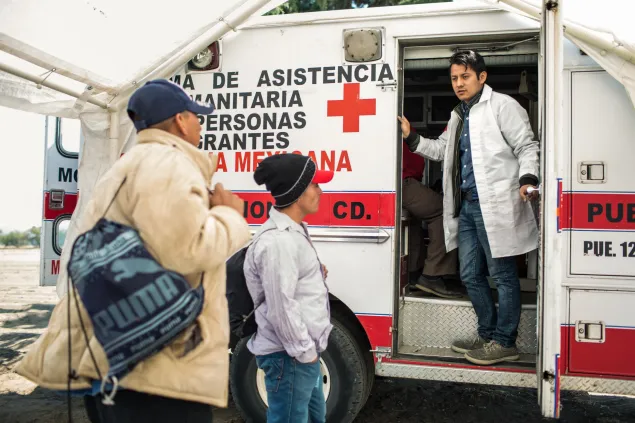
Ciudad Serdán, Puebla, México
At the aid station in Ciudad Serdán, south-eastern Mexico, migrants are given the opportunity to phone their loved ones for free. A doctor from the Mexican Red Cross is also on hand to provide health care. The aid station is strategically located between the highway and the railway line.
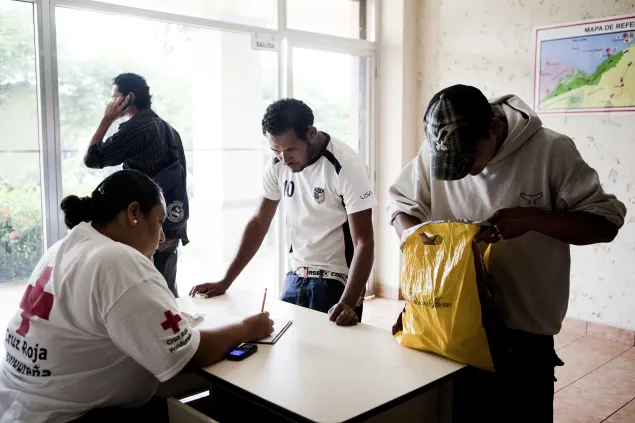
Corinto, Cortés, Honduras
Hayra Cárcamo, a volunteer from the Honduran Red Cross, welcomes returned migrants at the aid station in Corinto, Honduras, on the Guatemalan border. The migrants have been deported from Mexico and she is helping them get in touch with their families. Being able to make free calls home means they can let their loved ones know how they are doing.
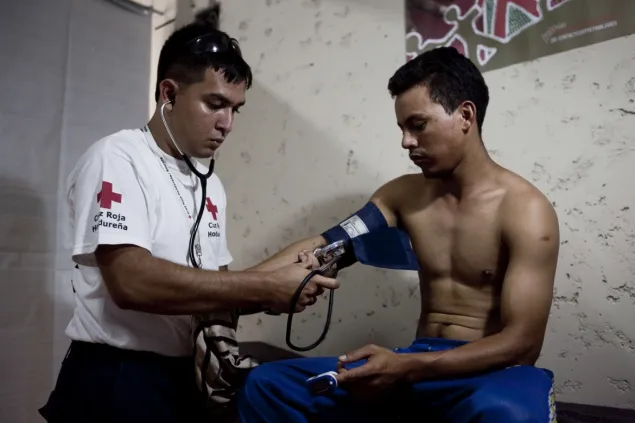
Corinto, Cortés, Honduras
Byron Vásquez, a volunteer from the Honduran Red Cross, provides pre-hospital care at the aid station in Corinto, Honduras. The young man pictured has recently been repatriated but needs medical attention before returning home.
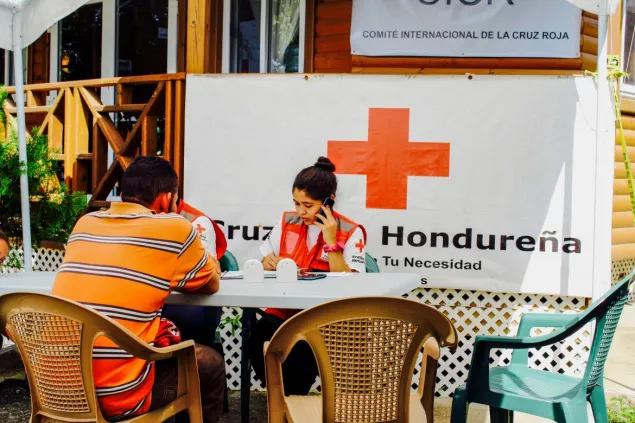
Omoa, Cortés, Honduras
At the aid station for returned migrants in Omoa, Honduras, a volunteer from the Honduran Red Cross helps a repatriated migrant phone home for free. Being able to speak to loved ones relieves some of the psychological and emotional strain of the ordeal, on both sides. More frequent contact is also helpful for tracing people, should something go wrong.
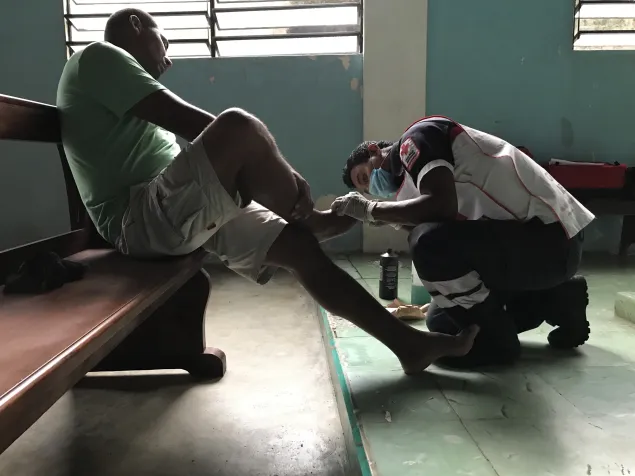
Salto del Agua, Chiapas, México
The Santa Martha shelter in Salto del Agua, southern Mexico, is one of the first that migrants reach after crossing the Guatemalan border. Having walked for days on end, they often arrive with foot injuries, which the volunteers tend to with diligence and care.
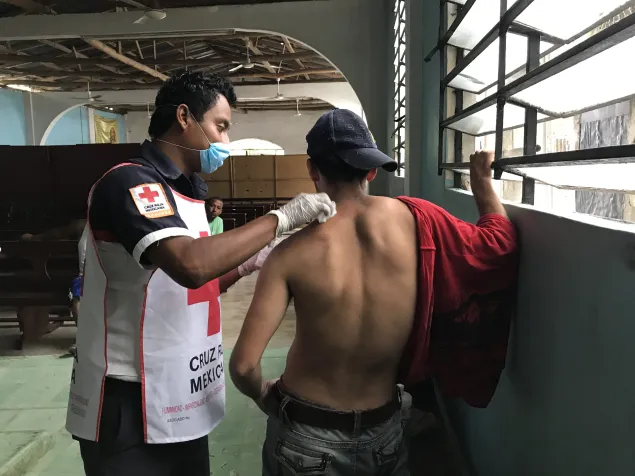
Salto del Agua, Chiapas, México
Misael, a paramedic from the Mexican Red Cross, treats a young migrant at the Mexico–Guatemala border. He shuttles between aid stations, including the Santa Martha shelter. It’s rewarding for him to meet the same migrants again further along the migration route and see that they are doing well.
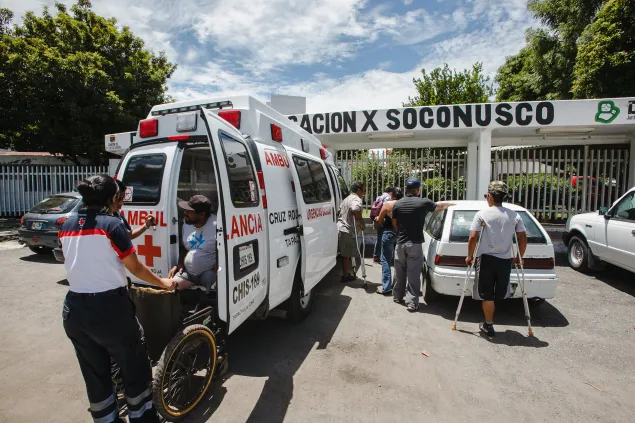
Tapachula, Chiapas, México
Many migrants suffer serious accidents on their journey which, sadly, lead to amputation. In Tapachula, southern Mexico, volunteers from the Mexican Red Cross transport people to designated physical rehabilitation centres as part of the support programme for amputee migrants.
Thousands of people in Mexico and Central America decide to leave their homes every year to escape poverty and violence. In the hope of a better life, they set off on a journey that can often be long and treacherous. The ICRC has paired up with the Red Cross societies of Mexico, Guatemala and Honduras to set up aid stations along the migration route. Red Cross volunteers work tirelessly at these points to provide migrants with basic health care, water and the opportunity to contact loved ones.



